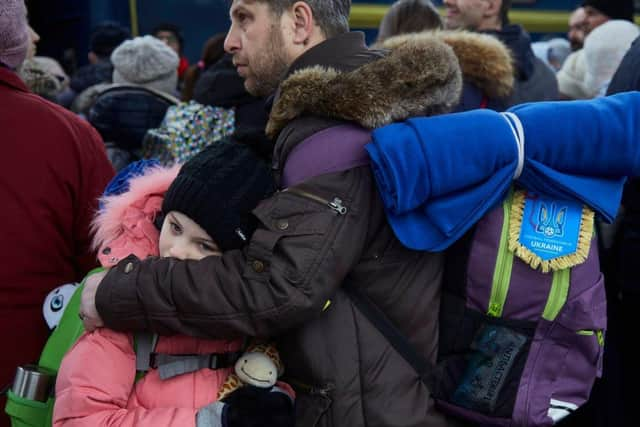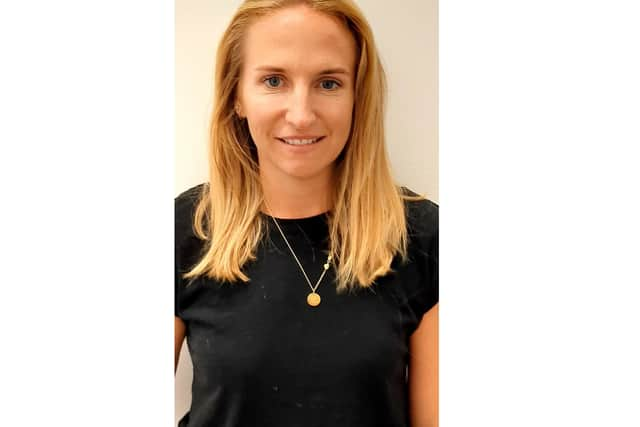How to talk to your child about the Ukraine war - according to a Portsmouth psychologist
and live on Freeview channel 276
Portsmouth High School clinical psychologist Dr Abi Parnell has shared her tips as to how you can support your child and provide comfort to them.
Find out what they know and how they feel
A good starting point is to find out what your child already knows and how they are feeling. Choose a time where you can bring it up naturally and your child is more likely to feel comfortable talking freely. Try to avoid talking about the topic just before bed though. Try to follow their lead. Let them ask questions and do your best to correct any inaccurate information they may have come across. Use age appropriate language and be sensitive to their reactions. Try to reassure them that they are safe from danger and that many people around the world are working hard to find resolutions to the situation. Remember that it is okay if you do not have all the answers. Also be ready not to talk about the current situation with your child. Don’t press the issue with them if they do not want to talk about it.
Advertisement
Hide AdAdvertisement
Hide Ad

Validate their feelings
Remember that younger children may not be able to distinguish between images on screen and their own personal life and may believe they are in immediate danger. It may be difficult for them to comprehend the physical distance between them and the violence occurring in the Ukraine. Showing them a world map might help reassure them that they are safe. Older children may have seen things online and be scared about how events might escalate. Be sure to acknowledge their feelings and assure them whatever are feeling is natural. Remind them it’s OK to feel worried or anxious. Resist the urge to tell them not to worry.
It can be helpful to support children to express their feelings through writing, play or drawing. These indirect ways of communicating can provide an important window into what they are experiencing. Try to listen; doing so can provide a real sense of relief and safety for children. Again, try to listen and don’t assume you know what they are thinking or feeling.


Be mindful
Give some thought as to what you watch or listen to on the television and radio when your children are around, as well as the conversations you have with others. Consider switching off the news around younger children, particularly if it is full of alarming headlines and upsetting images. If your child wants to know what is going on ensure you use a child friendly version of the news and ensure they have time to talk about what they have learned afterwards with a trusted adult.
Circle of control
A useful activity is to help children differentiate between what they can’t control (for example, what is happening day to day in the Ukraine), and what they can control (such as taking positive action – for example, by donating to a charity helping refugees). Feeling like they can take positive steps towards a solution can help give children a sense or relief in uncertain times such as these.
Advertisement
Hide AdAdvertisement
Hide AdLook after yourself
Children look to their parents for a sense of safety and security – even more so in times of crisis, and you will be better able to support your child if you’re coping too. Make sure that you have support and someone to share your concerns with, so that you have the tools to manage any worries or anxieties you may be holding onto. Limit how much news you consume and try and make times to do things that help you relax.
If you notice any consistent changes to your child’s behaviour (changes to their sleeping, eating, increased anxiety, appearing withdrawn etc) and are concerned about your child’s well-being, then please talk to your child’s teacher or your GP.
SEE ALSO: Russian opera in Portsmouth cancelled
It comes as Hampshire schools have sent messages out to parents also offering guidance on how to support children through the news of the conflict.
In an email one said: ‘Many of us are anxious about the news unfolding about the conflict between Russia and Ukraine. Even if you’re not directly affected, watching these events can be upsetting. Your child may not be watching the news, but they may still hear about these events in other ways, and this may cause anxiety for them too.
Advertisement
Hide AdAdvertisement
Hide Ad‘During this difficult time, I wanted to reach out to let you know what we are doing in school to support your child, and offer you guidance on how you can support them too.’
A message from the Editor, Mark Waldron
Subscribe here for unlimited access to all our coverage, including Pompey, for just 26p a day.
Comment Guidelines
National World encourages reader discussion on our stories. User feedback, insights and back-and-forth exchanges add a rich layer of context to reporting. Please review our Community Guidelines before commenting.
